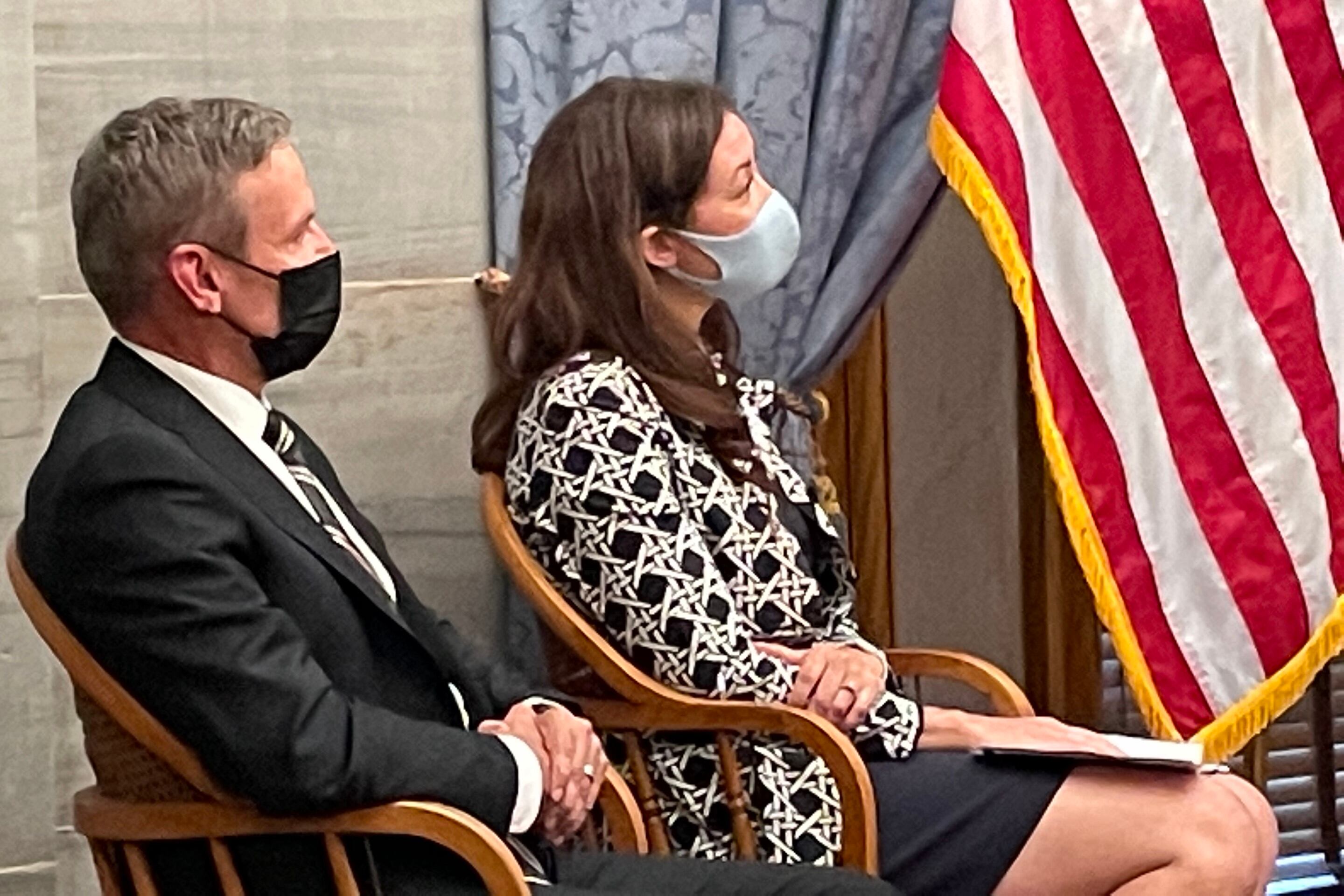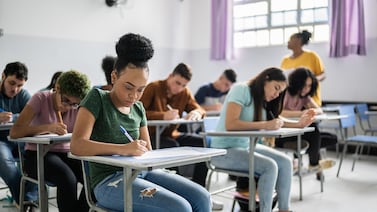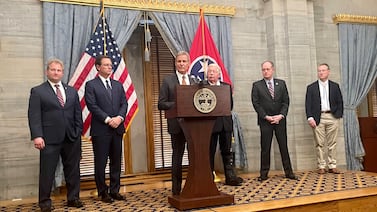Education Commissioner Penny Schwinn has granted eight of 14 waiver requests from Tennessee school leaders wanting to switch temporarily to remote learning under a COVID response plan that began this week.
A spokesman for the Tennessee Department of Education said Wednesday that Schwinn also partially granted one other application and denied two, while three more requests weren’t eligible.
The department has not provided details about what applications have been submitted or approved. The process extends to charter schools but can’t be used to pivot entire school systems to virtual instruction.
The rollout of seven-day waivers, announced late last week, is Schwinn’s attempt to give district and school leaders some flexibility on new state rules that essentially require in-person instruction this academic year, except when individual students must temporarily isolate or quarantine due to the virus.
But Gov. Bill Lee’s administration is under increasing pressure to provide even greater flexibility for virtual learning as additional districts shut down under the strain of COVID’s highly contagious delta variant. According to data from the state health department, more than 38% of all Tennessee COVID cases reported last week were among children up to age 18.
Hamilton County school leaders were the latest to announce they will shutter their Chattanooga-based district for two days next week to try to tame the virus over the long Labor Day weekend. At least 17 other school systems were closed this week for the same reason, according to a list compiled by The Tennessean.
Such closures require districts to dip into stockpiled days used usually for inclement weather. District leaders are worried that at this rate, they’ll run out of those before winter arrives.
In Memphis, where the state’s largest district provided remote instruction for most of the last academic year, a school board meeting became emotional Tuesday night as parents pressed leaders of Shelby County Schools for more virtual options.
But officials there said state rules don’t provide the same flexibility as last year. And Schwinn’s waiver option is limiting too, they said.
“The process is stringent, and we understand there’s little likelihood of a large district like ours getting approved since we have a pool of substitutes and administrative office staff who can step in if we don’t have enough teachers to staff our classrooms,” spokeswoman Jerica Phillips said Wednesday.
“Right now, we’re managing,” Phillips added. “But we are also exploring ways to petition the state to expand our continuous learning plan — for instance, for families where there is chronic illness.”
Nashville school leaders don’t expect to request waivers either.
“Our focus remains on keeping mitigation strategies in place to keep students safe and learning in the classroom,” said spokesman Sean Braisted, citing universal masking, social distancing, and vaccinations for eligible students and staff in Metropolitan Nashville Public Schools.
During her weekly call with district superintendents on Wednesday, Schwinn said she is reviewing waiver requests on a case-by-case basis and looking especially closely at staffing problems.
Earlier in the week, she said there’s no clear criteria for granting waivers because “there’s a lot of variance across the state” on the size of schools and districts and availability of staff.
“It really is going to be about specific individual waiver requests at the classroom and at the school level, and it is when there is no way that you can continue to reasonably provide in-person instruction,” Schwinn told reporters.
“In-person instruction continues to be our priority in the state of Tennessee. That will not change,” she added.
Schwinn announced Wednesday that the state has reopened the application process for districts wanting to launch their own virtual schools in light of recent COVID outbreaks. In July, her department approved 29 new virtual schools for this year, bringing the total statewide number to 57.
Sen. Raumesh Akbari, who chairs the Senate Democratic caucus and serves on her chamber’s education committee, called on the governor to give school leaders more autonomy to respond locally to the public health crisis through an executive order or new state rule.
“Any flexibility being offered is helpful, but the delta variant wasn’t an issue when these decisions were made,” said Akbari, of Memphis. “We are now seeing record numbers of students being hospitalized and other students sitting at home and not learning because their schools have been closed. We are dealing with something that’s more unknown and potentially more deadly.”
A spokeswoman for Lee did not immediately respond Wednesday. The governor is scheduled to hold his weekly news conference on Thursday at the state Capitol.








